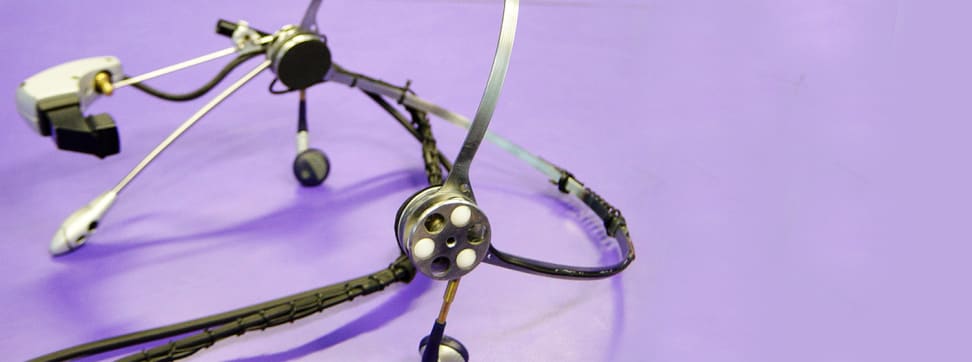Dyson Made Google Glass 10 Years Before Google Did
How a vacuum manufacturer almost beat Google to the punch.
 Credit:
Credit:
Products are chosen independently by our editors. Purchases made through our links may earn us a commission.
For most people, the name Dyson brings to mind cool-looking vacuums, savvy advertising, and one charismatic Brit with a Caesar cut. That’s the image Dyson has been running with since Sir James Dyson founded the company in 1993.
If you’re particularly keen on the brand’s product line, you’re also aware of its bladeless fans and hand dryers. But how much do you know about Dyson’s augmented reality glasses?
Likely nothing, because they never advanced past the prototype stage—but it was indeed a thing back in 2001. That’s right: 2001.
The Dyson Halo, as it was called, could project the illusion of a translucent display a few feet in front of the user. It did this by reflecting content from tiny displays on either side of the head onto a prism. But the most prescient aspect of the technology was that the gadget’s CPU could be removed from the headphone-like headset and plugged into a standard desktop monitor for more sedentary use.
Dyson leaked further details of the design in celebration of the company's 21st birthday, explaining that the headset could be used in an "audio-only mode," which allowed users to operate the computer through voice commands and text-to-speech technology—not unlike Apple’s Siri. It even included a projected virtual keyboard that could track finger motions—technology that's still in its infancy 13 years later.
To say this product was ahead of its time is an understatement. So why was it canned? According to The Guardian, Halo was shelved after three years so Dyson could focus on bringing its core products—good old fashioned vacuum cleaners—to the U.S. market.
Given how much more expensive sensor technology was back in 2001—not to mention the size of microprocessors—it seems likely that anything remotely like Halo would have been slow and prohibitively expensive, even by Google Glass's already clumsy standards. But you have to admire the forward thinking.
